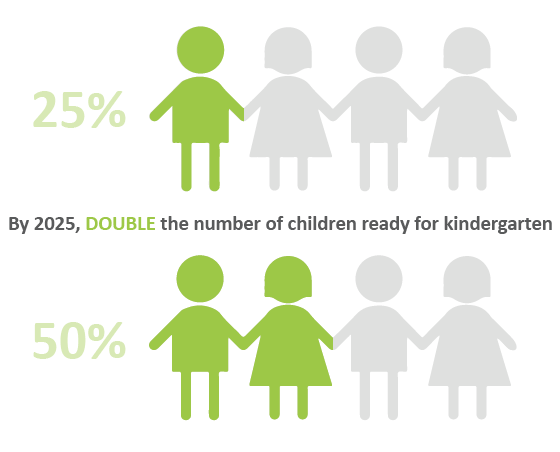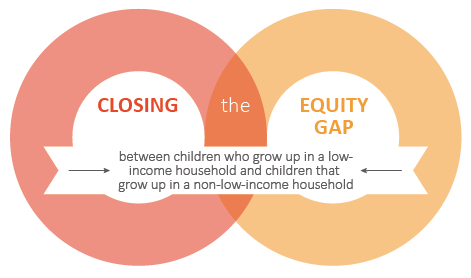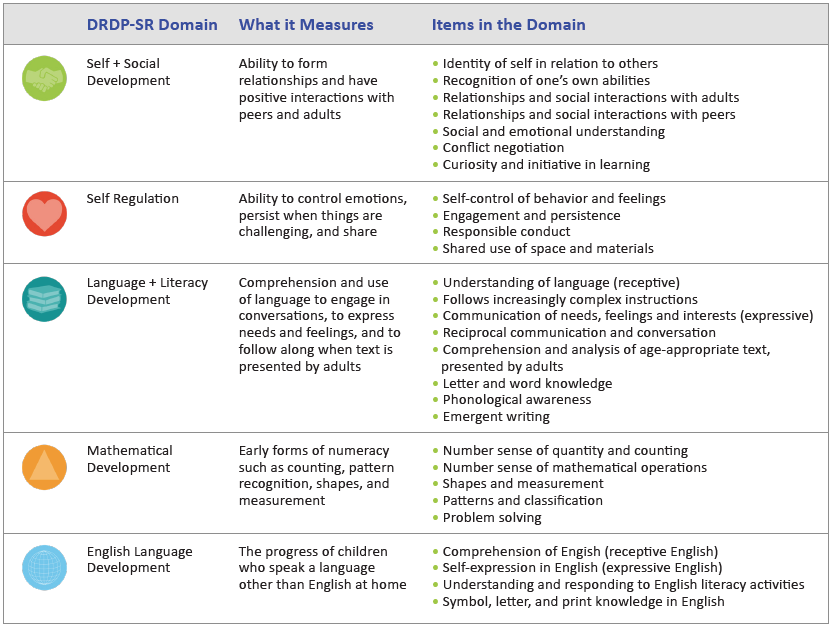OUR GOAL
Our goal is to transform systems to better support every child and family in Monterey County. If we succeed, the result will be seen in improved health and well-being for children and their families. Over time, these community-level efforts will be reflected in reductions in maltreatment and abuse, and in improvements in children’s holistic development. To focus our collective efforts, and keep children’s holistic development at the center, we will work towards two community-wide objectives:
- By 2025, double the number of children who are holistically supported so that they are healthy, their development is on track, and they are well prepared for kindergarten*
- By 2023, significantly reduce gaps in kindergarten readiness between children in low-income households and children in non-low-income households*
We will use these two goals to reflect on the systems changes that are needed – and to evaluate whether our strategies are achieving their desired results. They will also inform our efforts to make sure our health, education and social service systems are ready for – and responsive to – children and families.


WHAT WE KNOW
Children who are nurtured early demonstrate kindergarten readiness, such as stronger learning skills, like self-regulation, that leads to higher graduation rates, better health, and increased earnings.
Investments in high-quality early care and education improves not only children’s academic performance, but also crucial social, emotional, and behavioral traits like social skills, motivation, and self-esteem. Studies that have followed children through their adult lives confirm enormous payoffs for these investments, whether measured in success in college, higher income, or lower incarceration rates.
DIS-AGGREGATED DATA
2015 data show significant equity gaps in kindergarten readiness. Children in low-income households are much less likely to be well prepared in all domains. Also, Latino children and Indigenous Mexican children are less than half as likely as their White and Black peers to be fully prepared for kindergarten. The inequities reflect systemic barriers facing low-income, Latino and Indigenous families, including lower access to high quality early care and education.
HOW WILL WE MEASURE PROGRESS?
A critical part of our collective impact approach is the commitment of all partners to monitor and evaluate the results of their work using shared measures. This will allow the community to monitor short term progress in strategy implementation – and make improvements. We will also use the findings to track our collective progress in achieving our overall community-level goals. We are currently working to improve the measures used to assess kindergarten readiness and other early childhood indicators, and ways of gathering and analyzing those data. Our goal is to have a more comprehensive system for gathering key information on each child’s development in place by 2020.
Tracking kindergarten readiness is just one of the ways we will measure collective progress. We will evaluate the effectiveness of this strategic framework and the priority strategies annually, and track the systems changes we create. We will support Action Teams implementing these strategies to develop and use appropriate strategy-level measures. Some examples of targets and strategy-level measures (some of which are already being used) are outlined in “Together, preparing every child for life and school.”

Image. A summary of the domains covered by the tool currently used to measure kindergarten readiness, the Desired Results Developmental Profile – School Readiness© (DRDP-SR©) (Source: First 5 Monterey County, 2015)
Click here to view and download our Data + Goals one pager for more information.
Click here to view the Early Childhood Development 2016/2017 Indicators
* We are using the terms poverty, poor and low income to signify families that have self-reported that their income is below the federal poverty line.
